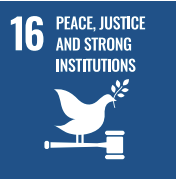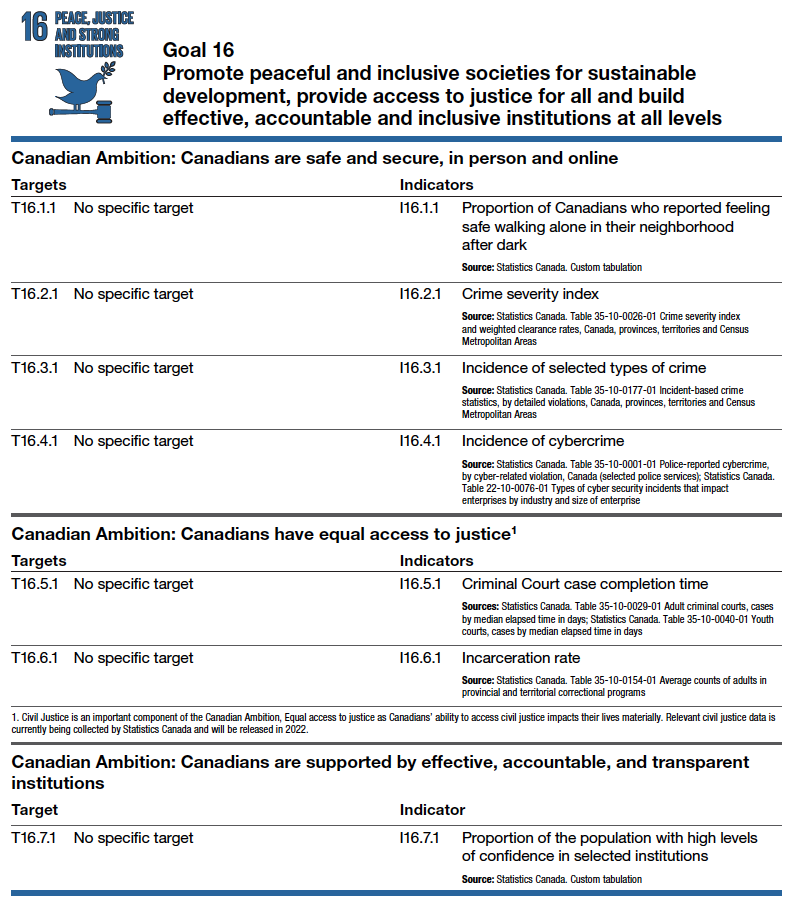Week 9
SDG #16 – Peace, Justice, and Strong Institutions

Video
In this 11-minute video made available from the SDG Academy, Jeffery Sachs looks at lessons learned from Syria in achieving lasting peace, the underlying conditions needed for peace and how we can invest in peace.
Analysis
Ensuring peace, justice and strong institutions are prerequisites to sustainable development[1]. In line with the integrated nature of the 2030 Agenda, SDG #16 has strong links to all Goals. In total, 36 of the 169 SDG targets directly measure an aspect of peace, inclusion, or access to justice, with only one third of these actually found in SDG #16.
Conflict, insecurity, weak institutions, and limited access to justice remain a great threat to sustainable development. The number of people fleeing war, persecution and conflict exceeded 70 million in 2018, the highest level recorded by the UN refugee agency in almost 70 years[2]. In 2019, the United Nations tracked 357 killings and 30 enforced disappearances of human rights defenders, journalists, and trade unionists in 47 countries2. The births of approximately one in four children under age 5 worldwide are never officially recorded, depriving them of a proof of legal identity crucial for the protection of their rights and for access to justice and social services2.
For Canada, democracy, inclusive and accountable governance, respect for diversity and human rights are core values shared by Canadians. While Canada is fundamentally a safe and peaceful country, threats and emergencies can arise in many different ways including through terrorism, organized crime, and natural disasters1. In Canada, there continue to be groups of people who experience discrimination, harassment, and violence. Historically excluded people and groups are significantly more likely to experience injustice1. Indigenous women and girls in Canada are disproportionately affected by all forms of violence from various factors including racism, sexism, the legacy of colonialism, and the devastation caused by the Indian Residential School system1.
Transparent and accountable institutions and organizations strengthen the fabric of society. Internationally, continued support is needed to establish and maintain peace and security, both for the safety of citizens and as a precondition for sustainable development.
Fast Facts
- Among the institutions most affected by corruption are the judiciary and police;
- Corruption, bribery, theft, and tax evasion cost some US $1.26 trillion for developing countries per year; this amount of money could be used to lift those who are living on less than $1.25 a day above US$1.90 for at least six years;
- Birth registration has occurred for 73% of children under 5, but only 46% of Sub-Saharan Africa have had their births registered;
- Approximately 28.5 million primary school age children and youth who are out of school live in conflict-affected areas;
- The rule of law and development have a significant interrelation and are mutually reinforcing, making it essential for sustainable development at the national and international level;
- The proportion of prisoners held in detention without sentencing has remained almost constant in the last decade, at 31% of all prisoners.
Violence against children
- Every 7 minutes, somewhere in the world, a child is killed by violence;
- 50% of the world’s children experience violence every year;
- 1 in 10 children is sexually abused before the age of 18;
- 9 in 10 children live in countries where corporal punishment is not fully prohibited, leaving 732 million children without legal protection;
- 1 in 3 internet users worldwide is a child and 800 million of them use social media. Any child can become a victim of online violence;
- Child online sexual abuse reports to have grown from 1 million in 2014 to 45 million in 2018;
- 246 million children worldwide are affected by school-related violence each year;
- 1 in 3 students has been bullied by their peers at school in the last month, and at least 1 in 10 children have experienced cyberbullying;
- Violence against children affects more than 1 billion children around the world and costs societies up to US$ 7 trillion a year;
- The number of people fleeing war, persecution and conflict exceeded 70 million in 2018, the highest level recorded by the UN refugee agency in almost 70 years;
- In 2019, the United Nations tracked 357 killings and 30 enforced disappearances of human rights defenders, journalists, and trade unionists in 47 countries.
Why it Matters
Why should I care about peace, justice, and strong institutions?
Peace is essential to ensure a healthy and productive global population. In the absence of peace, it will be impossible to fully achieve the other SDGs.
Targets and Indicators for Canada
Below is Canada’s approach to measuring progress on SDG #16 – Peace, Justice, and Strong Institutions. Note the targets and indicators chosen[3].

Recommended Reading
- United Nations. (2021). The Sustainable Development Goal Report, 2020. Promote peaceful and inclusive societies for sustainable development, provide access to justice for all and build effective, accountable and inclusive institutions at all levels.
- Global Affairs Canada. (2018). Canada’s Implementation of the 2030 Agenda for Sustainable Development: voluntary national review. ↵
- United Nations. (2021). Sustainable Development Goals. ↵
- Statistics Canada. (2021). The Canadian Indicator Framework for the Sustainable Development Goals - 2021 ↵

